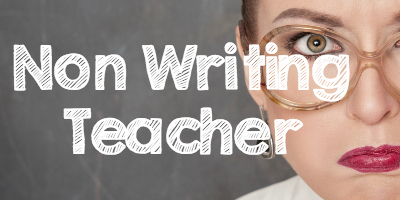
Are you a writing teacher who wants to instill a love of writing in your students but aren’t sure how? Yes, teaching standards is important and students need to be college and career ready, but that doesn’t mean we have to suck the fun out of writing, does it!?!? In this post learn the ways teachers kill a love of writing, (don’t worry I’m guilty too) and simple ways to transform the way standards are taught so students are motivated to write and not dreading it.
Here’s what the teacher says… “Class I want you to write me an essay, it’s like a hamburger! You need to write an introduction, three supporting paragraphs and a conclusion.”
Here’s what the students are thinking, “Nooooooo!”
Here’s a better way to go about it… “Class today you will write an important article that will be published on a very popular website for kids!” Choose a few of the best student articles to publish on a website, display in the class library, read aloud to the class, send home to families in a newsletter or turn them into a bound book.
Choose a few of the best student articles to publish on a free Weebly site or look into the many websites available for student publishing. Check out the video below for more ideas!
No, not every piece of writing a student produces has to be published, but…
Teachers should try to avoid the word essay at all costs! It isn’t even in the Common Core! The word “piece” is the most frequent term used.
Here’s what the teacher says… “Class today we have to take a test to see if you’ve learned all that I’ve been teaching you this month.” Here’s a better way to go about it…”Today you are going to write that brilliant piece you’ve been working toward and use this checklist to guide you on your writing journey. I urge you to use all the skills that you’ve learned through this unit to help you!”
I recently turned a common summative assessment all 6th-grade core teachers at my school are required to do into a contest. Students have to write an argumentative “essay” (I call it article) and the top five articles were published right here!
Assessments should provide valuable insight for the teacher AND be a learning experience for students.
Here’s what the teacher says… “You need to work on making paragraphs, and you forgot to capitalize these words and you need to remember to zoom in and not talk about a whole day and…” This is too much feedback! Here’s a better way to go about it… “I LOVE how you…[name 2-3 things], let’s work together to…[name ONLY 1 thing].” I know it is hard to ignore all the mistakes and things that could be improved in a student’s writing but they will retain NOTHING if you give them too much feedback.
Students should feel proud of their accomplishments and ready to try out a new skill after receiving feedback from you.
Here’s what the teacher says… “Today you will get your writing essay grades back.” Here’s a better way… “Today you will use the rubric to grade your own writing, turn it into me and then I will provide my feedback and thoughts.” You would be surprised how many students are actually quite accurate in the grade they choose for themselves and in their reasoning of that grade. Once both you and your students have added up the points using the rubric give students more time to revise and grow from the feedback.
Always allow students the opportunity to revise for a better grade. Always.
Here’s what the teacher does…never tries writing what she/he expects students to write. This is a HUGE mistake. Teachers who never talk about their own writing lives fail to connect with their students on a very important level. Students need to see that even their teacher struggles with the many challenges of writing a quality piece, and there are many!
In order to be a quality writing teacher, you MUST try to make time to write.
Here’s what the teacher says day in and day out…”Today you will write [insert goofy, fun, wild writing prompt]…” Yes, I love myself a writing prompt once and awhile but students need choice because real authors have tons of choice about the topics they write about. Are you thinking… “But too much choice is hard to manage, my students won’t know what to write about and will waste time just sitting there.”
Struggle is important. Yes. You read that right, if a student needs to struggle a bit, let them! Your classroom should be a place that fosters the authenticity of the author’s life and authors often struggle to find topics to write about! The teacher can provide structure by choosing the genre, so instead say, “Today we will write an information piece on a topic you LOVE and ENJOY.” or “Today you will write about a controversial topic that lots of people in the world argue about.”
The best way to help students find a topic to write about is making lots of lists and modeling lists too, so that students who struggle to find a topic have many choices to pick from.
Here’s what the teacher says, “I want you all to write about the time you…[insert some activity you think all students have experienced].” The problem with these writing assignments is not everyone has the background to be able to write about the topic you choose for them! This is why it is so important to steer clear of using too many manufactured writing assignments. Not only do these assignments limit the number of students that can write about them, they also stifle student motivation!
Try assigning the genre, modeling the brainstorming list process and then give choice from there!
Here’s what the teacher does…no pens, no mechanical pencils, no typing, just use a pencil. Confession: the sound of my own pencil to paper is like hearing nails to chalkboard! You may wonder why students try to sharpen pencils that don’t even seem dull, well…have you ever thought that anything other than a super duper sharp pencil makes them cringe (like me)?!?
Let your students write with pen and type whenever possible because honestly, pencils are becoming well…old fashioned! Get with the times people!
I hope that I have provided insight and inspiration for your writing class through this post. Don’t forget to share on your social media if you found any of this valuable! Thanks a million times over for visiting and reading!
Want to make your writing mini lessons fun and engaging?
Check these videos out!









0 Comments